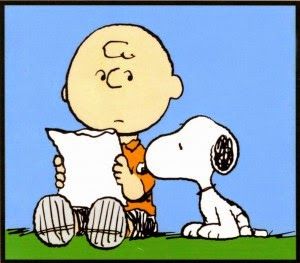Are there languages without a grammar structure? No.
Are there languages without spelling rules? Well, more or less. Actually, a few of them have very complicated and numerous exceptions.
English, for instance, has its grammar well-displayed, although its orthography is one of the most irregular among European languages, along with the French and the Danish ones. That is why Anglophone Countries have Spelling Bee contests and, more importantly, that is the reason why you should pay double attention when spelling English words.
You may wonder why ‘put’ and ‘cut’ don’t rhyme or why the o-u-g-h sound is completely different in ‘thought’, ‘though’ and ‘cough’. Well, you ought to know that the latter can be pronounced 9 different ways in English, like [ʌf] in rough, /aʊ/ in plough, /u:/ in through, /oʊ/ in though, /ɔː/ in thought, /ə/ – in thorough /ˈθʌr.ə/, /ɒf/ in cough, /ʌp/ in hiccough and /ɒk/ in lough. If you are wondering what’s the pattern behind it let me just get it straight: there isn’t one.
English is not a phonetic language, meaning that to every letter there is not just one correspondent sound. In fact, there are 44 phonemes (or ‘sounds’, if you want) in English and only 26 letters in the English alphabet.
Grammar, on the other hand, is the skeleton of a language, a set of rules shaped throughout centuries of adaptations and influences from other languages that changed, changes and will always change. It is described as the rules about how words change their form and combine with other words to make sentences. Orthography, on the other hand, concerns hyphenation , capitalization, word breaks and boundaries, emphasis, and punctuation. As a consequence, we only deal with orthography when we write or type and basically deal with the order of letters, rather than the order of words, which is more a grammar thing.
What is tricky about spelling is that, although it’s way easier to learn than grammar, it changes quite faster.

An example, you say? Look at the word online. No, I’m not telling you to look at it online, I said look at the word ‘online’. It started being used to refer to people connected to the internet, so quite recently, but it managed to change from on line, to the hyphenated on-line, to the later and contemporary spelling ‘ online’.
As a consequence, it is rather easy to involuntarily spell words wrong in English. There is no scientific evidence (that I have found) that tells us whether it is easier to make grammar rather than spelling mistake, since it is in fact a matter of personal disposition: grammar requires using critical thinking, while a perfect spelling requires a good memory (in some cases, a brilliant one).
According to the Chicago Manual of Style, grammar is:
In its usual sense, grammar is the set of rules governing how words are put together in sentences to communicate ideas—or the study of these rules.
As a consequence, a grammar mistake is to fail putting words in the correct order or failing the accordance between subject and verb, for example. Yet, other mistake (or errors) shall be:
- To use the wrong pronoun case, for example when I say “us are waiting for you”.
- Using the incorrect verb tense, as in “Yesterday I’m going to the tailor”.
- Choosing an adverb instead of an adjective, as in “Jake is very closely to Hanna.”. And of course, it doesn’t work the other way round either: “This road is very bumpy, procede slow.”.
- Errors with the comparative and superlative forms of adverbs and adjectives, of course the classic “I can do more better than this!”.
- Using a pair of mismatched correlative conjunctions, like “I haven’t seen them, neither Laurey or Mary.”
- Using the wrong preposition, of course. One of the most common errors for non native speakers: “I’m going in Milan tomorrow”.
- Writing incomplete sentences, “Such as when-”.
However, what kind of mistakes do we make when we accidentally use ‘your’ in the place of you’re, or ‘their’ instead of ‘there’ or ‘they’re’?

It appears that when somebody wants to use a word but ends up using a different one for, let’s say, a spelling uncertainty, that would be a grammar mistake. In fact, It looks like it’s more common for people to fail using a word in its appropriate context, rather than failing in spelling it (especially now that online tools have us covered on that).
Other similar and very common grammar mistakes might be using ‘affect’ instead of ‘effect’, ‘illicit’ in the place of ‘elicit’, ‘all together’ and not ‘altogether’.
Another kind of mistake, that lies in the category of spelling mistakes but is not quite the same thing is the typo. A typo is an involuntary orthographic error, unnoticed because it mostly occurs when typing too fast on a keyboard. The solution to this one is rather simple though: check your texts before sending, posting or publishing them.
Grammar errors and spelling mistakes sometimes have been used on purpose by great poets and writers to convey certain meanings, to mimic accents or to define personalities, sometimes using eye dialect to report the register of certain social classes, or alterating the order of words to underline a peculiar poetic image.
However, whether you’re the next Virginia Woolf or not, make sure to have a quick dive in Ludwig, so you can make sure to avoid undesired side effects of bad use of words in your writing, either syntactical or orthographical.






